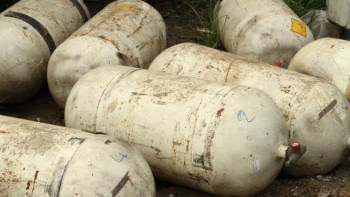Rights and Challenges of Older People in Bangladesh

The United Nations has initiated various international guidelines for the well-being, dignity, development and realisation of human rights of older persons. Consequently, many developed and developing countries have paid attention to develop elderly social support programme and welfare based legal framework in line with UN standards. Older persons as senior citizens deserve more attention and care from the State as well as the society but their rights are not being ensured extensively in Bangladesh. The problem underlies the fact that this issue is not prioritised at the policy level and that the laws in place are not properly implemented.
The government took few initiatives for the older people, such as pension system, retirement benefits and some other initiatives under Social Safety Net (SSN) programmes, i.e. the Old Age Allowance (OAA), the Allowances for the Widow, Deserted and Destitute Women, the Vulnerable Group Development (VGF) and so on. However, a vast number of people from the older population remains outside the ambit of these programmes. The government is providing pension benefits for elderly after their retirement specially for the government sector. But private sector workers and migrant older workers do not receive any pension. Thus, most of the elderly face various challenges in financial issues under the exiting social security programs.
The National Policy on Older Persons was formulated in 2013. Although the policy is a positive initiative, due to lack of specific legal framework and sincere efforts from the concerned ministries, it yet to be properly implemented. Most of the older people and service providers authorities are unaware of the policy. Also, the elderly people are not getting public transport facilities, residential establishments, separate healthcare at the grassroots level and other infrastructure in hospitals, airports, buildings and different recreational places, as envisaged under the policy.
In the same year 2013, the Maintenance of Parents Act was enacted for giving maintenance to parents by the children. Before enactment of this Act, there was no specific legislation to bring any legal action for maintenance rights of the parents. The Act can be considered as a milestone in the arena of rights of elderly people. The law ensures the right to food, cloth, shelter, medical facilities for parents and grandparents (sections 2 & 4). In case of separate living of the parents, the children are responsible to give them a reasonable amount of money from their daily, monthly or yearly income (sec 7). The law also ensures the parents maintenance through equal responsibilities of male and female children. Another important provision entails that the children shall never compel their parents to live in parents care or in any other place against their will (sec 3). The offences are cognisable, bailable and compoundable. In case of obstruction or non-cooperation from son's wife or daughter's husband or children or any other relatives, such person shall be liable as abettor to the same crime and punishment (sec 6).
Although the law has established the parents' legal entitlement to maintenance from the children, it is not free from some drawbacks. The law does not provide for the maintenance of adoptive or childless parents. So, it does not include adoptive and step-parents under the term 'parents'. Additionally, the law does not mention by whom and as to how 'reasonable amount of money' is to be paid by children for parents' maintenance. In the context of India, section 5 of the Maintenance and Welfare of Parents and Senior Citizens Act 2007 incorporates assenting and step guardians of children which expands the scope to get maintenance. According to section 5(2) of the Act, the court may arrange children to give a month to month recompense to support elderly parents. But the Parents Maintenance Act 2013 of Bangladesh does not have similar provisions. However, looking at the positive aspects of the law, it can be said that, if the law is properly implemented, the safety, security and all other opportunities for many uncared elderly parents will be ensured. But the Rule under the Act has not yet been formulated.
In 2017, the Foundation for the Development of Older Person Act (Draft) was prepared under the Ministry of Social Welfare. The government has planned to establish 'Elders Development Foundation' (Probin Unnayan Foundation) by enacting the Foundation for the Development of Older Person Act. It is set to be enacted for the development of older persons. The major objectives of the draft law are to ensure facilities such as food, clothing, communication and treatment for the increasing number of older persons. With the present demands of elderly, the draft law should be enacted for the execution of the national policy and for providing social service facilities to ease the plight of the older people. Additionally, the government should adopt the Madrid Plan of Action towards achieving the Agenda 2030 for Sustainable Development of all citizens including the elderly so that they can pass their later life with respect, dignity and peace.
The writer is Professor of Law, Bangladesh Open University, Bangladesh.


 For all latest news, follow The Daily Star's Google News channel.
For all latest news, follow The Daily Star's Google News channel. 



Comments